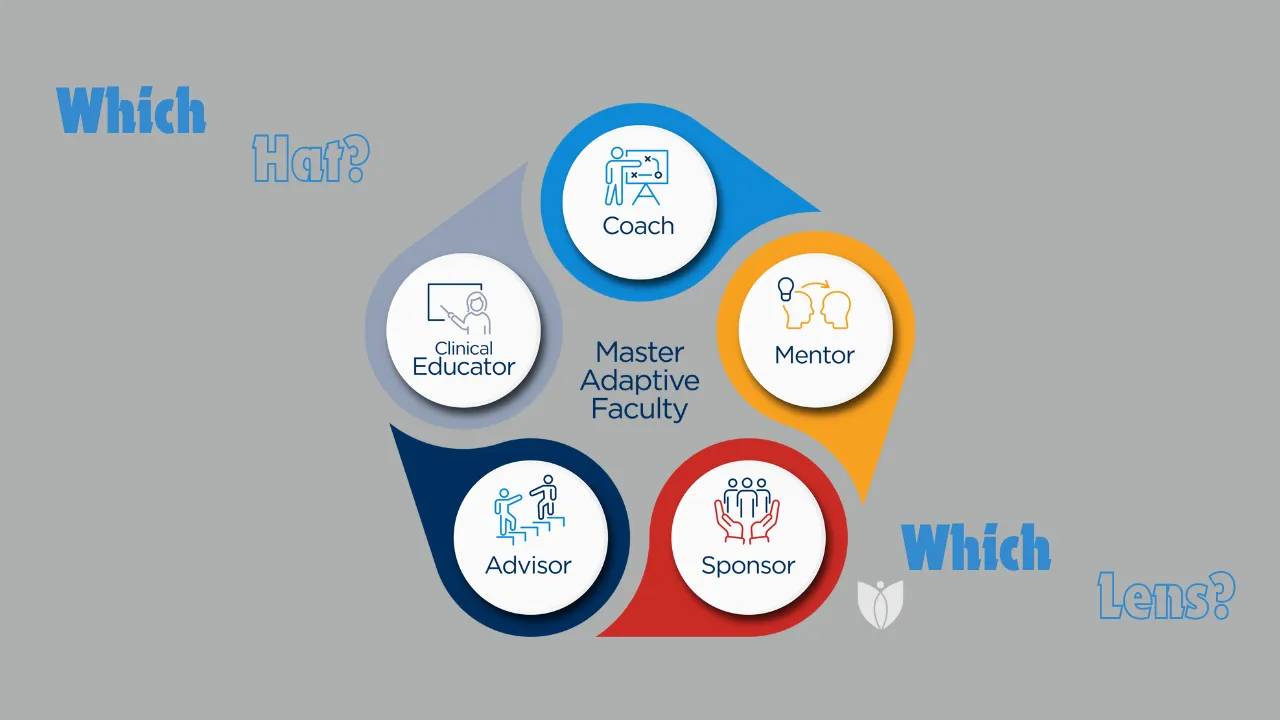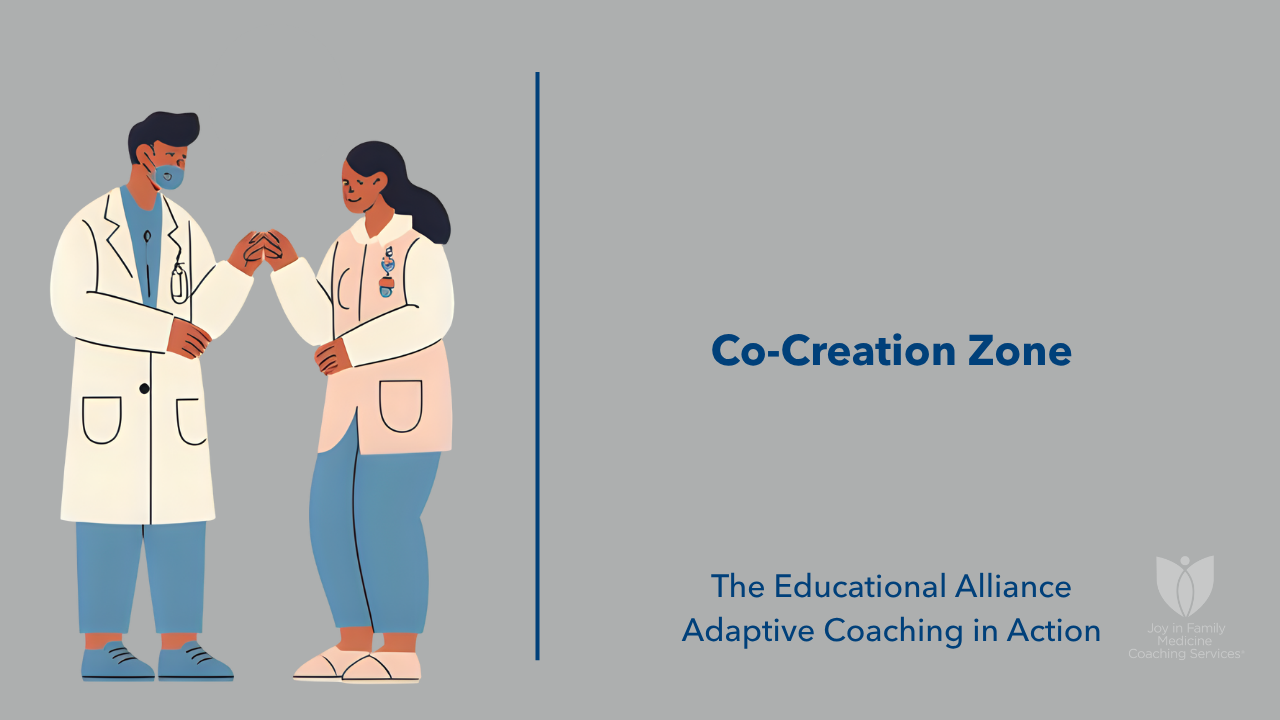The Joy in Family Medicine Blog
Insights and practical ways forward:
Rooted in years of reflection, medicine, education, and coaching
Curated to support your well-being, growth, and fulfillment as a physician.
Welcome to our current featured series: Common Physician Thought Distortions, where we explore the mental patterns that add u...
Welcome to our current featured series: Careers in Family Medicine, where we explore the many paths physicians take to serve ...
Welcome to our current featured series: Physician Success Tool - Confidence, where we explore the dynamics of self-confidence...
Faculty Coaching Series
How can faculty use coaching skills to develop residents more effectively?
This nine-part series expl...
This post is part of the Faculty Coaching Skills Series, which explores how faculty can apply coaching approaches in medical...
We’ve talked a lot about developmental coaching in this Faculty Coaching Series - those deeper, reflective conversations that...
Coaching in academic medicine can feel a little abstract until you’re in it.
Whether you're a resident navigating clinical ...
First, in case you missed it, a less detailed post: What it means to process emotions
The Challenge of Emotions in Medicine
A...
The Challenge of Staying Engaged in Medicine
There’s no doubt that practicing medicine is rewarding, but it can also be exh...
We are looking at your investment in your own well-being with the emphasis this go round on physical health. To date, we rev...
Welcome back to our series on physical well-being investments. Today, we’re diving into perhaps the most critical supporter o...
We are looking at your investment in your own well-being with the emphasis this go round on physical health. Last week we rev...














